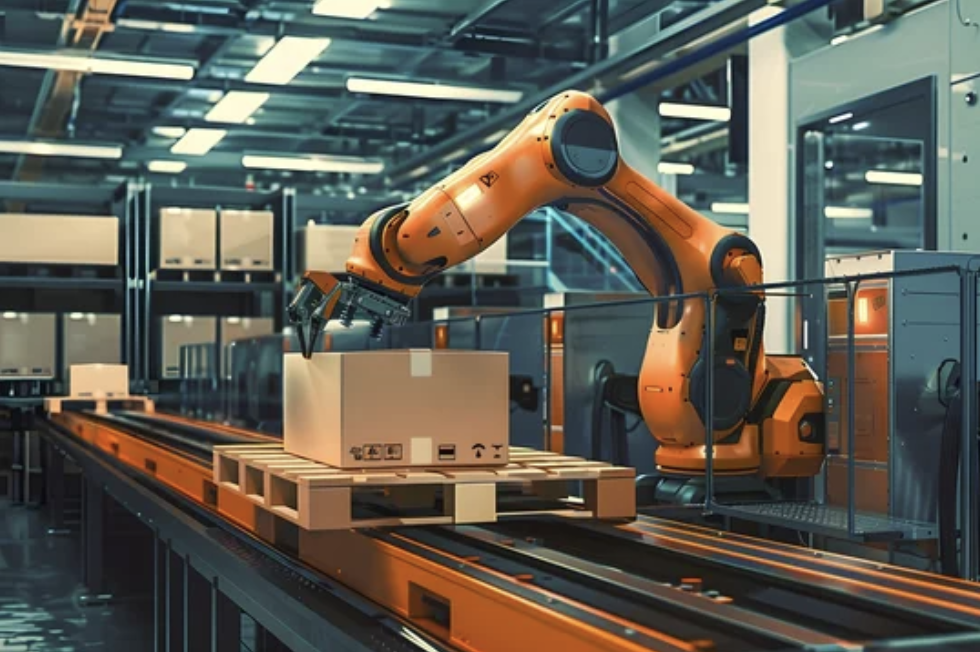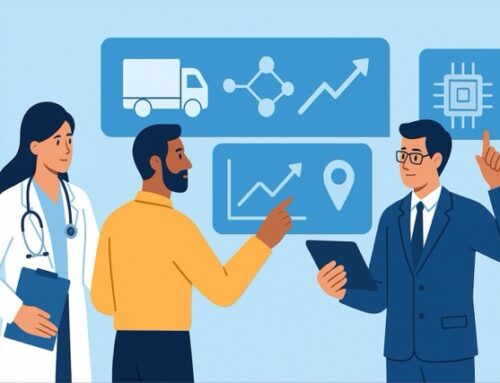In the ever-evolving world of logistics, technological advancements are playing a pivotal role in shaping the future of the industry. As businesses strive to meet the growing demands of global trade and e-commerce, the integration of cutting-edge technologies is becoming increasingly essential. These advancements are enhancing operational efficiency and enabling companies to respond more effectively to the dynamic challenges of modern supply chains. In this article, we will explore the most significant technological innovations in logistics, their current applications, and what the future might hold.
The Rise of Automation and Robotics in Warehousing
Automation and robotics have rapidly become the backbone of modern warehousing. In the past, warehouse operations were labor-intensive, with workers manually handling inventory, packing orders, and moving goods. Today, the landscape is dramatically different, thanks to technologies such as Automated Guided Vehicles (AGVs) and Autonomous Mobile Robots (AMRs). These robots are designed to navigate through warehouses autonomously, picking, packing, and transporting goods with precision and speed. The use of robotics reduces the reliance on human labor and minimizes errors and increases throughput, leading to significant cost savings.
Beyond just moving goods, robotics is also enhancing processes such as sorting and packaging. For instance, robotic arms equipped with advanced sensors and machine learning algorithms can handle delicate items with care, ensuring that products are packed securely for transit. The integration of these technologies with warehouse management systems (WMS) allows for real-time inventory tracking, optimizing storage space, and ensuring that the right products are always available when needed. As these technologies continue to evolve, we can expect even more sophisticated systems that will further revolutionize warehousing.
The Impact of Artificial Intelligence and Machine Learning
Artificial Intelligence (AI) and Machine Learning (ML) are transforming logistics by providing powerful tools for data analysis and decision-making. One of the key areas where AI is making a significant impact is in demand forecasting. By analyzing historical sales data, market trends, and external factors such as weather patterns or economic indicators, AI algorithms can predict future demand with remarkable accuracy. This allows companies to optimize their inventory levels, reduce stockouts, and avoid overstocking, ultimately leading to more efficient and cost-effective operations.
In addition to demand forecasting, AI is being used to optimize transportation routes. By analyzing real-time traffic data, weather conditions, and delivery schedules, AI algorithms can determine the most efficient routes for delivery vehicles, reducing fuel consumption and delivery times. This helps in cutting costs and contributes to sustainability efforts by lowering the carbon footprint of logistics operations. Moreover, AI-powered chatbots and virtual assistants are improving customer service by providing real-time updates on order status, handling customer inquiries, and resolving issues promptly.
Blockchain: Enhancing Transparency and Security
Blockchain technology is emerging as a game-changer in logistics, particularly in enhancing transparency and security across the supply chain. Traditionally, supply chains have been complex and opaque, with limited visibility into the movement of goods from origin to destination. Blockchain addresses this challenge by providing a decentralized and immutable ledger that records every transaction in the supply chain. This transparency ensures that all parties involved, from manufacturers to end consumers, can track the movement of goods in real-time.
The use of blockchain in logistics is particularly beneficial in industries where traceability and authenticity are critical, such as pharmaceuticals, food, and luxury goods. For example, in the pharmaceutical industry, blockchain can be used to verify the authenticity of medicines, ensuring that counterfeit products do not enter the supply chain. Similarly, in the food industry, blockchain can trace the origin of products, ensuring that they meet safety standards and are ethically sourced. As blockchain technology matures, it is likely to become an integral part of logistics operations, providing unprecedented levels of security and trust.
The Internet of Things (IoT) and Real-Time Tracking
The Internet of Things (IoT) is revolutionizing logistics by enabling real-time tracking and monitoring of goods throughout the supply chain. IoT devices, such as GPS trackers, RFID tags, and sensors, can be attached to shipments to provide continuous data on location, temperature, humidity, and other critical factors. This real-time visibility allows companies to monitor the condition of goods, ensure compliance with quality standards, and provide accurate delivery estimates to customers.
Moreover, IoT technology is playing a crucial role in enhancing fleet management. By equipping vehicles with IoT sensors, companies can monitor vehicle performance, track fuel consumption, and analyze driver behavior. This data can be used to optimize routes, schedule maintenance, and improve driver safety, leading to more efficient and sustainable logistics operations. In the future, the integration of IoT with AI and blockchain is expected to create a fully connected and intelligent logistics ecosystem, where every aspect of the supply chain is monitored and optimized in real-time.
Drones and Autonomous Vehicles: The Future of Delivery
Drones and autonomous vehicles represent the next frontier in logistics delivery. Companies like Amazon and Google are already testing drone delivery services, which promise to revolutionize last-mile delivery by reducing delivery times and costs. Drones can bypass traffic congestion and deliver packages directly to customers’ doorsteps, making them an ideal solution for urban areas. As drone technology advances, we can expect to see wider adoption, particularly in sectors where speed and efficiency are critical.
Autonomous vehicles, including self-driving trucks, are also set to transform long-haul transportation. These vehicles are equipped with advanced sensors, cameras, and AI algorithms that allow them to navigate roads, avoid obstacles, and make real-time decisions. The benefits of autonomous vehicles include reduced labor costs, lower fuel consumption, and improved safety. However, the widespread adoption of this technology will require significant regulatory changes and advancements in infrastructure. As these challenges are addressed, autonomous vehicles are likely to become a common sight on highways, transporting goods across long distances with minimal human intervention.
Sustainable Logistics: Embracing Green Technologies
Sustainability is becoming a top priority for logistics companies as they seek to reduce their environmental impact. One of the key areas where this is being achieved is through the adoption of green technologies. Electric vehicles (EVs) are increasingly being used for last-mile delivery, offering a cleaner alternative to traditional gasoline-powered vehicles. Companies are also exploring the use of alternative fuels, such as hydrogen and biofuels, for long-haul transport.
In addition to adopting green technologies, companies are implementing practices such as route optimization, load consolidation, and the use of eco-friendly packaging materials to reduce waste and energy consumption. The integration of AI and IoT with sustainability initiatives allows for more efficient resource management, helping companies meet their environmental goals while maintaining profitability. As consumer demand for environmentally friendly products continues to grow, the adoption of sustainable logistics practices is likely to accelerate, making it a key competitive advantage for companies in the future.
Big Data and Predictive Analytics: Unlocking Insights
Big data and predictive analytics are transforming logistics by providing companies with the tools to make data-driven decisions. By analyzing vast amounts of data from various sources, companies can gain insights into customer behavior, market trends, and operational efficiency. Predictive analytics allows logistics companies to anticipate demand, optimize inventory levels, and reduce lead times, ensuring that products are available when and where they are needed.
For example, by analyzing historical data and using machine learning algorithms, companies can predict peak seasons, adjust staffing levels, and ensure that warehouses are adequately stocked. This proactive approach to logistics management improves customer satisfaction and reduces costs associated with overstocking or stockouts. As the volume of data generated by logistics operations continues to grow, the importance of big data and predictive analytics in driving decision-making will only increase.
In Conclusion
Technological advancements are rapidly transforming the logistics industry, offering new opportunities for efficiency, sustainability, and customer satisfaction. From automation and AI to blockchain and IoT, these technologies are revolutionizing every aspect of logistics, from warehousing and transportation to delivery and customer service. As companies continue to embrace these innovations, the future of logistics promises to be more connected, transparent, and efficient than ever before, enabling businesses to meet the growing demands of global trade and e-commerce with confidence.










